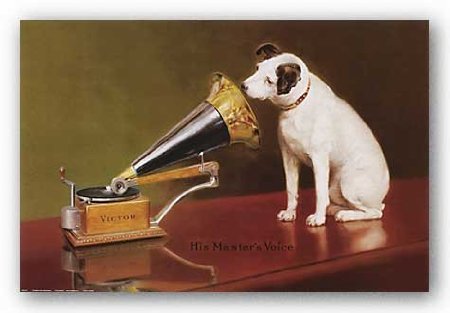From HMV to Youtube. Interview with Coloraturafan

Our grandparents probably “went to the opera” via HMV. Today there are many options, but probably nothing with a greater impact than Youtube. One of the most avid contributors is Coloraturafan who has single-handedly brought a great variety of artists and works to our attention. It is hard to imagine the amount of work this represents and clearly must come from someone with an enormous devotion to opera
Dillon Haynes aka Coloraturafan, kindly agreed to answer some of our questions which we share with you below.
Q.How did you become passionate about opera? Did you have any specific musical training?
I have always had a strong passion music. I started musical training at age six with violin. I was involved with youth orchestra and high school band, playing a variety of instruments, mainly brass. I taught myself piano, and that is really my favorite instrument. I began composing music at an early age also, completing my first opera when I was 18. I credit my grandmother (originally from Vienna) with taking me to see all different forms of arts, symphonies, operas, ballets, musicals while I was young.
Q. The on-line community has mushroomed over the last decade, but your contributions are still valued in spite of all the new options available. Do you have any thoughts on why that might be?
This is a good question. I am not exactly sure. Certainly there is no shortage of contributions on YouTube and other social media venues. I try to keep things interesting and post more than just an aria from opera “A” and a duet from opera “B”. I make compilations, and mash things up a little. I have always wanted to expose people to new things in opera, not just listen to the same old things over and over. Anyone can post a clip of Callas singing Tosca or Netrebko singing Il Trovatore, and the videos will be very popular. But if you post a clip of 25 sopranos singing the Norma high D, you are going to get the Callas obsessed or Sutherland obsessed fans to listen to new voices. And that has always been a primary goal of my channel.
Q. You work very hard and selflessly to bring opera to people who do not otherwise have a chance to hear the great selections you post. Are people good about expressing their appreciation?
Yes, for the most part, I have been very well received. Of course, there are some people that don’t care for me. But that is life. Sometimes people forget that this is a hobby for me, not my job. I get a lot of messages, more so in the past, wanting me to post this or that. In the end, if I am able I try to honor the requests I receive.
Q. There is a lot of concern about “aging” opera audiences and the decline of attendance numbers in general. There are probably many reasons for this ( if it is true) but certainly the loss of access ( less opera on TV, radio, etc) has to play a role. What do you think?
I think there is always more that can be done to improve opera attendance. And I certainly agree we should be focusing on the younger generation in this respect. But we have to understand that the world is changing, people are becoming more reliant on smart phones and streaming TV. Munich, Brussels and a few other opera companies are starting to offer free streaming opera events. I think that is a great way to get the attention of the younger generation. It would be nice to see some American opera companies try free live streaming events also. The MET offers the live in HD, but I don’t see that as really accessing the younger generations. YouTube does go a long way in offering a variety of free outlets, but many times the videos are removed because of copyright issues. So in the end, YouTube and uses like myself can only accomplish so much.
Q Record companies used to promote recordings more than they do today, with the exception of “block-buster” artists. Do you see Youtube as helping to take up the slack?
I think so. But I also think that YouTube is so oversaturated that a lot of great singers get lost in the mix. As I said, it has always been a primary goal of my channel to promote more than just the super star singers.
Q. Your series “opera in 10 minutes” has been so successful in helping people become acquainted with less familiar works. Do you plan on continuing this series? Even for people who know the opera well, it can be a surprise and delight to see the excerpts you have chosen to illustrate the plots. Are your choices simply those you like best?
Well the Opera in 10 series was unfortunately done early on. I say that because the quality of these clips is really poor. I have always said that I am an opera fan, and not a video editor. Over the years, however, I have learned some very basic things. So looking back on that collection I am disappointed that I didn’t put more effort into the editing. With that said, my Coloraturafan account was closed a few years back, and I took the opportunity to revisit the series; this time taking advantage of better quality video editing and the newer 15 minute video allowance. I had completed Rossini and Verdi when that account was closed, and most of the work was lost.
You can see some of what was salvaged in this compilation
https://youtu.be/1eUueEx0Ha4
Q. Artists seem to appreciate your efforts. Is the feed-back you get from them mostly positive?
Generally speaking, most artists are very appreciative of the video postings. There have been many occasions when I get a message from an artist who will ask if I remove the video for whatever reason. Of course, I am quick to comply. But I have had a few run ins with singers who are very upset, and I have received some very direct messages from them.
Q. Your interviews with singers are also wonderful. They seem at ease and speak freely. How is the interview process for you?
My interview project is still fairly new. I am still getting adjusted to it myself. I have done four interviews so far, and one of them had to be scrapped due to technical issues. I think I am still learning on how best to format the interviews so that they are engaging and entertaining. I have received a lot of feedback from subscribers, and it helps me put things into perspective.
Before I start the interview I go over what my purpose is with the artist. I tell them that the interview is really casual and laid back and that we can edit anything out if they aren’t pleased with it. I also tell them that we are looking to make opera singers more approachable and show them more as people. So basically, just tell them to be themselves and have fun. So far this has worked well.
Q. Are there any specific performances of the past that you wish had been available for posting on Youtube?
I wish everything was available. So that is not an easy question to answer.
Q. What do you think makes a great Rossini singer?
For myself, Rossini comes alive when a singer is able to find a way to characterize the coloratura in a convincing way. Rossini asks a lot of his singers with all of the black notes, but they all have meaning and purpose and they should serve more than pure vocal brilliance.
Q. Of course, being Rossinians we would be remiss in not asking you if there is something special about Rossini that appeals to you!
His music speaks to me like no other. I can listen to Rossini all day and never get bored. From the fast paced cadenzas to the slow flowing cantilenas. I could listen to Rossini all day and never be bored.
Q. How many operas do you typically attend in a year?
I usually travel to Europe about four times a year, usually seeing around 9-10 operas per trip. So generally I see an average of 40 live operas a year.
Q. If you could interview any singer of the past ( someone that nobody alive today would have heard) who would it be, and what would you ask?
It would be a tie, between Rubini and Pasta. Their voices inspired great composers to write some of my favorite music, and I am sure that either singer would have so much to say about the art of singing.
